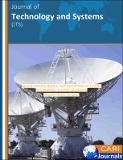An Enhanced Model For Adoption Of Local Softwares: A Case Of Kenya

View/
Publication Date
2017Author
Maurine Awuor Onyango, Kimwele Michael
Metadata
Show full item recordAbstract/
Purpose: This study attempted to explain how adoption of local software development is affected by the individual, technological, environmental and organizational determinants in Kenya.
Methodology:In this framework, explanatory research design was used. The population for this study was the 347 IT and ICT companies which provide software services in Kenya and their customers/users. The list was obtained from members of Kenya ICT Providers Association. A sample of 35 managers from firms was taken and also 70 users. Purposive sampling was applied to select the product managers while random sampling was used to select the 70 customers. In this study, primary data was collected using a structured questionnaire. The researcher used Statistical Package for Social Sciences Version 20 (SPSS) to generate the descriptive statistics and inferential results. Confirmatory Factor Analysis was used to analyze the data. Structural Equation Modeling using Analysis of Moment Structures was used to validate the research model. Post study interview was carried out to test the applicability of the model. Data collected from interview wasanalyzed and presented using SPSS.
Results:It’s therefore recommended that the software developments individuals and companies should consider these factors so as to develop software which are competitive and be able to sell to the local and international markets.
Policy recommendation: The study recommended that future studies can then investigate whether this status quo had changed. In addition, the study had contributed to communication audit methodology because of its rigorous and methodical approach in verifying the existence and effectiveness of communication in POSSspromote idealized influence, intellectual stimulation, inspiration motivation and individualized consideration as they influence performance positively.
